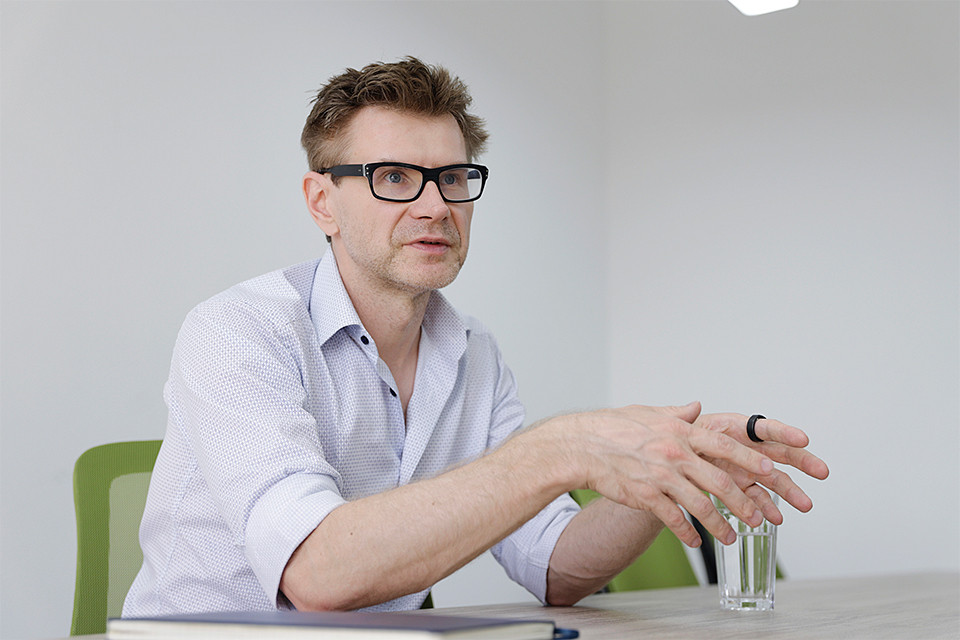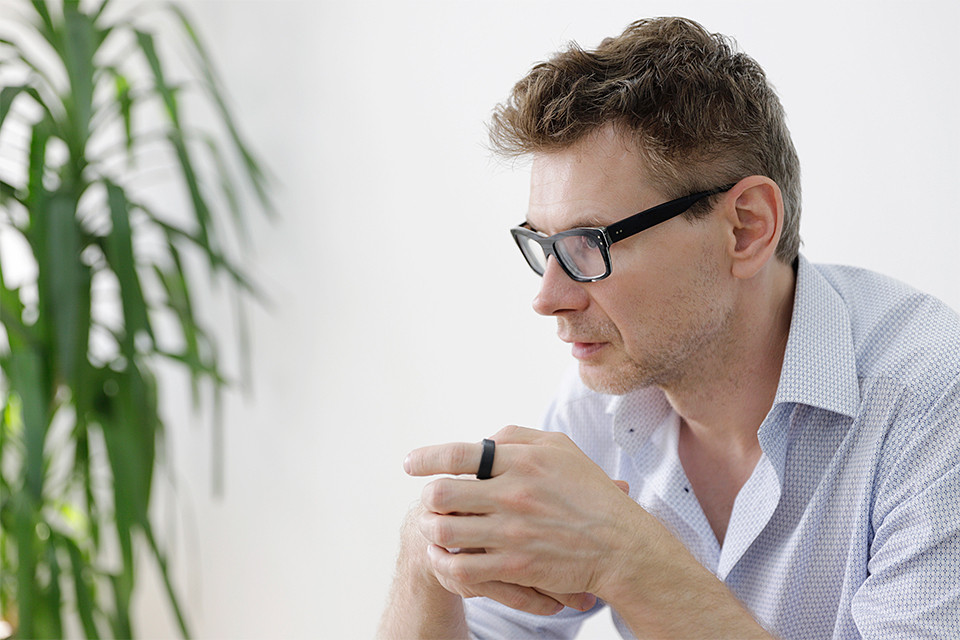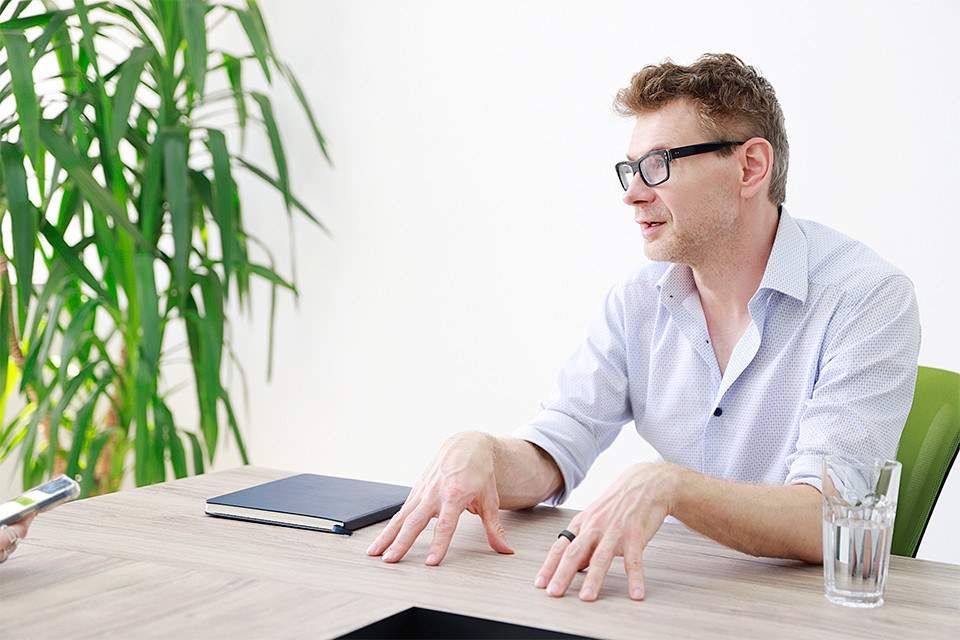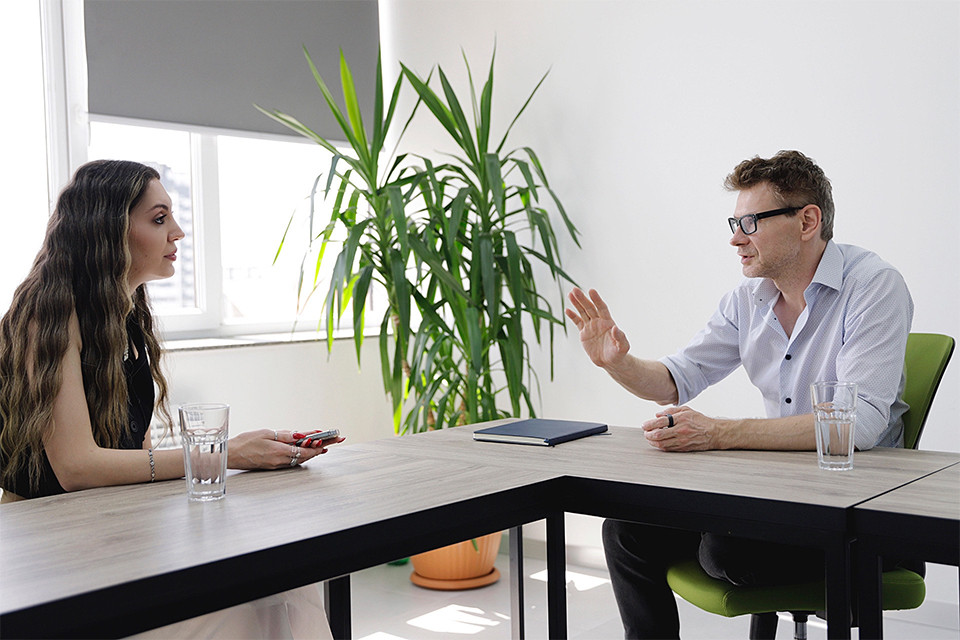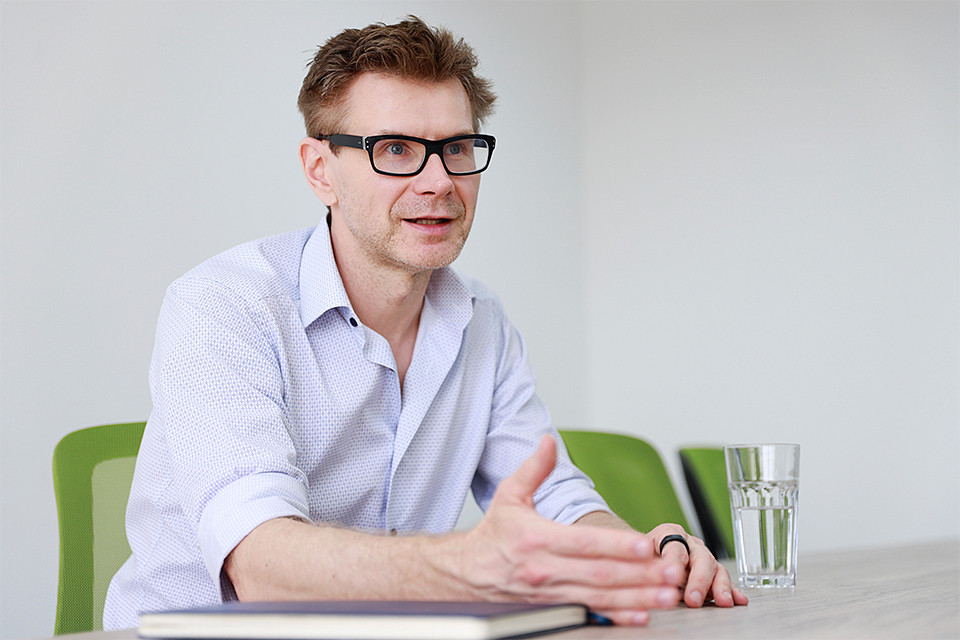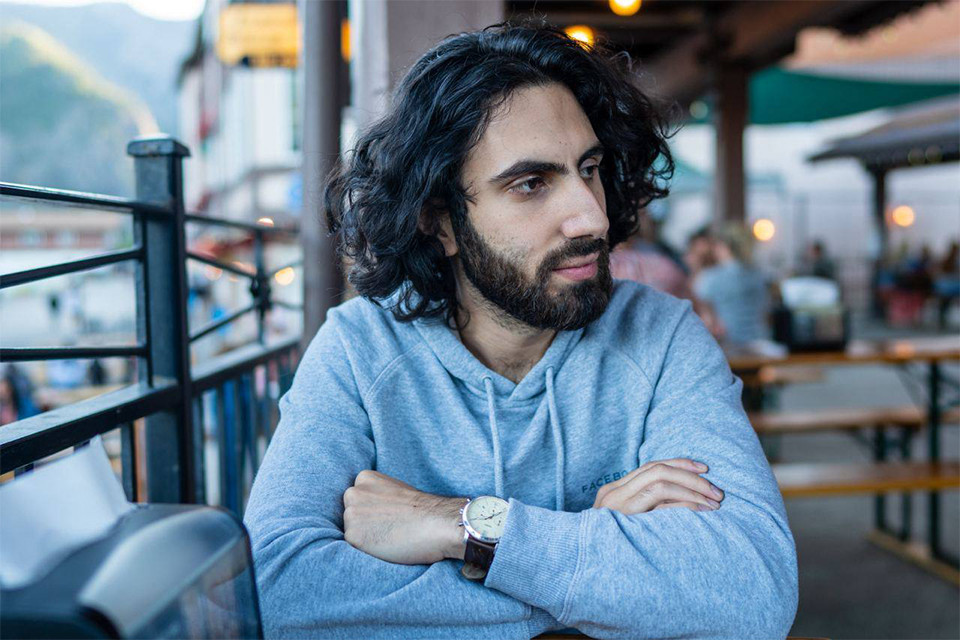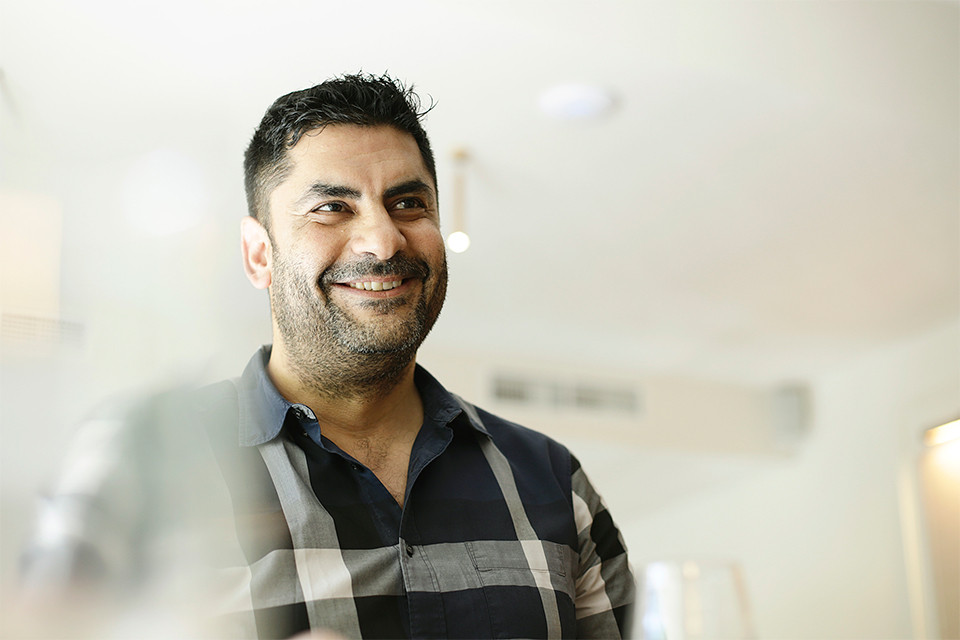16:46 | 18.06.24 | Interviews | exclusive 22806
Michael Antonov: on founding Oculus VR, Deep Origin, and the future of biotech
Michael Antonov has significant contributions in the fields of virtual reality, venture capital and biotechnology. He founded Oculus VR, which Facebook acquired for about $2 billion in 2014. He has also been active in the field of venture investments as a co-founder and partner of Formic Ventures and is now the co-founder and CEO of Deep Origin.
Deep Origin is a cutting-edge biotech company revolutionizing the field of drug discovery and development through advanced AI-driven solutions. It leverages state-of-the-art artificial intelligence to accelerate the research process, uncover novel therapeutic targets, and streamline the journey from concept to clinical application. With a strong focus on innovation and collaboration, Deep Origin aims to transform the biotech industry, making groundbreaking treatments more accessible and efficient.
Itel.am had an insightful conversation with Michael Antonov, about the early days of Oculus VR, its acquisition by Facebook, his current role in venture capital. We also explored the IT ecosystem in Armenia and the merger of Deep Origin with BiosimAI, founded by Garegin Papoyan.
Please share with us a bit about your journey, some insights into the early development stages of Oculus VR?
- Before Oculus VR, I started another company called Scaleform. My co-founder Brendan Iribe and I started this company out of college. And it was making game development tools for user interfaces. It actually took us a decade to build this company. The first four to five years we were struggling, in terms of just learning and building a lot of technology. And then we positioned it and our tool became popular, and it was sold to Autodesk. We were working in Autodesk for about a year, but shortly after that, Brendan moved to another startup in California. And he called me to California. As a result, I ended up
moving there in 2012, and that's actually the year Oculus VR was founded.

I just moved to California, starting a new job, then news showed up about a virtual reality headset made by a 19 years old young kid called Palmer Luckey. He was collaborating with world famous programmer John Carmack, who demoed his headset at a big E3 show. Suddenly people were saying that the best thing they'd seen at that show was John's headset, which is basically Palmer's handmade. It had cardboard, a screen etc.
Brendan and I reached out to Palmer and convinced him to start a company. We launched a Kickstarter campaign. I had no idea how it’s going to be, but it actually exploded. Our goal was at least 250K in sales, we had a million dollars on the first day, and two and a half of sales were in a month for Kickstarter. So suddenly, we had to do this company, because we promised to ship people hardware. That's how we started Oculus VR.
Could you share details behind Meta's acquisition of the company?
-VR is actually very expensive and difficult to make. If you make a headset, first of all, you have to build the materials, but also it requires software. It was getting more compelling. One of our investors connected Brendan to Zuckerberg. He saw the demo and was excited. I actually didn't really want to get sold. Because I thought we should get to market on our own. That's just my preference. But ultimately, they made an offer and we agreed. So having a big company like Facebook made sense, who could afford to spend on it, and now they're spending many billions of dollars on it. I actually don't spend much time on VR anymore.

Let's move on to your current role in venture capital. Please describe the core philosophy and focus areas of Formic Ventures?
-Formic Ventures is not a traditional venture firm. We invested from my family office. It was really focused on health, longevity and technologies around it. So we had more broad things we did, but 80% of the capital was invested in life sciences, which are basically tools for based drug discovery, maybe some type of instruments, various infrastructure and therapeutics for longevity. Because I really care about human health span. I basically try to learn as much as I can about it. Currently I’m not really investing, because I’m focused completely on Deep Origin. Now I’ll probably do one or two investments a year. Deep Origin is my main focus.
You’ve already had an experience of cooperation with an Armenian founder, you've made an investment in Garegin Papoyan’s BioSimAI. Tell us about the experience of working with him, Deep Origin and BiosimAI merger features as well. How is it going?
-I was super excited to meet with Garik. We met more than two years ago. I was already thinking about simulating cells in life, because I was believing that in order to solve healthcare and therapeutics we really need that to understand biology. Garik is super strong in the atomic simulations and physics. The most incredible thing about him is that he knows several layers of technology. Sometimes people just focus on molecular dynamics, or on a very narrow thing, but his area of knowledge in physics and chemistry was like four or five times broader than other specialists.

So I thought we could talk about the bigger vision with him. And he had already started BiosimAI, and I invested in his company from Formic Ventures. We then discussed whether we could integrate their tools into a broader compute platform, given our work on this new technology and pathways. And we started to build a broader platform together. We integrated some of their biases, technology into the Deep Origin platform. I wanted the teams to work closer together, so that's why we decided to do an acquisition. And it's really more of a merger of equals. I wouldn't call it an acquisition. I would say we merged. And now the capital is used to support our projects together.
And in which stage you are now?
-This is an advanced seed stage for us, as we already have early customers and positive feedback. We're very excited and things are going well, though I won't name specifics just yet. We're in the early product-market fit stage. Our tech, developed here in Armenia, is among the best in the world. If someone needs to drug a protein, they should come to us. Our target market is global, focusing on the US and Europe. While the US currently has more customers, we expect to serve clients worldwide, particularly in the biotech sector.
This was your second visit to Armenia, what are your initial impressions of the Armenian tech ecosystem?
-I know SmartGate VC well because of their Hero House events, where I’ve met several founders. They do a great job promoting Armenia in Los Angeles and have a big community presence. I've met very hard working talented people here. While I don’t know many other details about the Armenian tech ecosystem, my impression is that there are skilled AI and ML engineers and a strong interest in computer science and AI. The talent pool may be still somewhat limited. There's a willingness to learn and grow, people here seem smart.
What advice would you give to the founders, tech entrepreneurs to succeed? How can they position themselves to capture the attention of investors?
-To succeed, you need a deep understanding of your customers and the problem you're solving. Engage with your potential users and customers, define your product clearly. That's true for any company.

In terms of investors, broaden and grow your network. Traveling to Europe or other regions can help. While there are several funds here, you need to reach out investors and to connect with founders locally and beyond. For B2B customers, international sales are often essential. Consider bringing someone on board from the area where you expect to find many customers.
What are the emerging technologies or trends that you're most excited about these days?
-I spend most of my time focused on biotech. AI is a huge part of our work, especially in drug discovery with our conversational AI assistant and various AI models. We have a strong team here. I am both excited and a little scared for AI because I don't think anyone really knows the exact effect it will have on society, but in the next few years it will help a lot to advance key areas.

My main interest is in biology. Robotic labs are becoming more helpful, although the industry is still catching up in terms of automation. Genomic and epigenetic editing are advancing and starting to make an impact.
Personalized medicine is another key area. While drugs can help, much of our health depends on exercise, sleep, and nutrition. With current advancements in sensors and diagnostics, we can now get personalized advice on nutrition and supplements, optimizing health in ways we couldn't before.
Over the next 10 years, with the rise of startups and new tools, we’ll likely see significant improvements in our ability to live healthier and longer.
Nune Grigoryan talked to Michael Antonov

17:29 | 24.09.25 | Articles
Jacopo Losso on Cross-Border Investments and Why Armenia Attracts Angels

